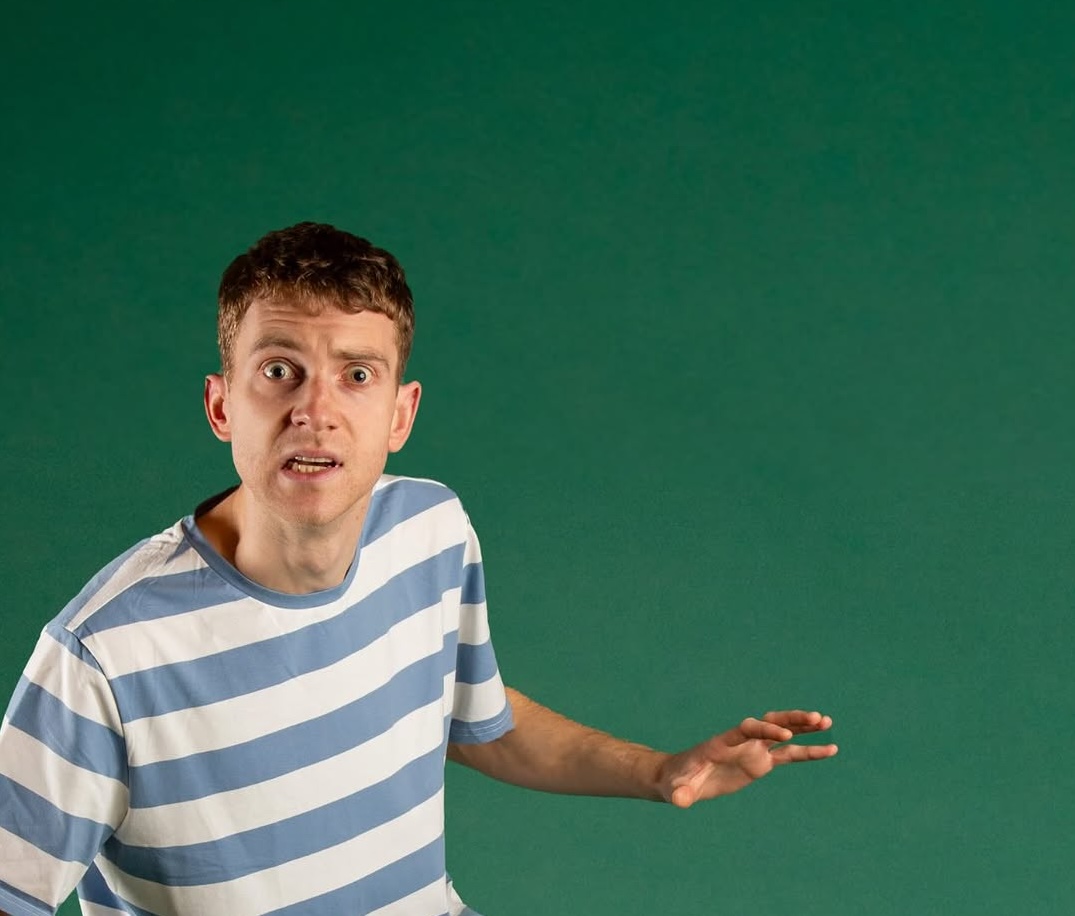Not long out of university, Tom’s down on his luck: sofa-surfing, rejected by the job market, questioning both his choices and his dreams. He pitches up on his dad’s doorstep in the style of the prodigal son, but finds himself turned casually away. Stung by the rejection, he reflects on the fragile connection with his buttoned-up dad, and the moments – good and bad – which the two of them shared. And then he finds a portal to an alternate universe inside a mirror in a bathroom.
Tom Bass (both actor and character are called Tom) is a mesmerising physical performer. His movements are sinuous, yet the shapes he forms are angular and bold. A handful of scenes draw on clowning, with overt winks to the audience and touchingly shy vulnerability; others tell a story through movement, more succinctly than language ever can. And if one or two of the images felt a little hackneyed to me, they’re offset by unexpected motifs and surprising tonal changes, often aided by sparing but effective lighting and sound design.
To be honest though, if I hadn’t read the programme blurb, I’m not sure I’d have understood the business with the mirror: it’s an unnecessarily convoluted gloss on what could be a simple daydream. Through the mirror, Tom imagines the conversations he wishes he could have with his dad – or more precisely, the things he wishes his dad would say to him. These spoken segments have hidden depth, with the ache of a connection forever missed, and a brief allusion to the handed-down trauma so famously captured by Philip Larkin.
But Tom isn’t blameless here. He’s hurt that his dad won’t listen to the music he’s composed, yet he himself shows no interest whatever in dad’s beloved garden. He expects to be welcomed back to his childhood home, but we learn that he neglected both home and family while he was having fun at uni. The script does call out these ironies, and since we’re seeing the world through Tom’s eyes, it makes sense that our view is blinkered. But still, there’s something in the balance that didn’t sit quite right for me: a hint of disdain for the older generation, which leached out from Tom’s character to impact the tone of the show itself.
It’s thought-provoking all the same, quietly devastating, yet with enough hints of tenderness to allow for defiant hope. The softest of Tom’s memories are beautiful indeed: the sweet way the little boy creeps into his father’s bed, the invitation to remember the joy of childhood play. And it’s a piquant reminder that – if we find connection difficult – we can all take a moment to look in the mirror.


Comments